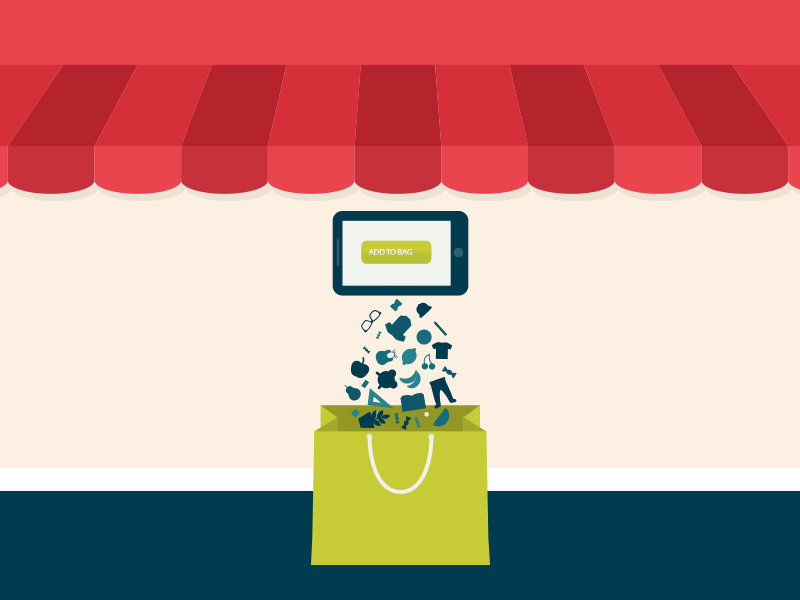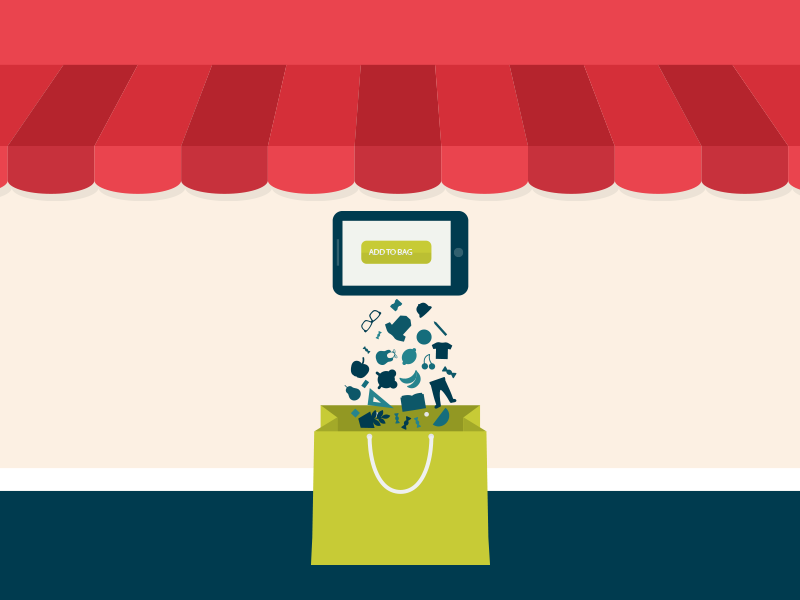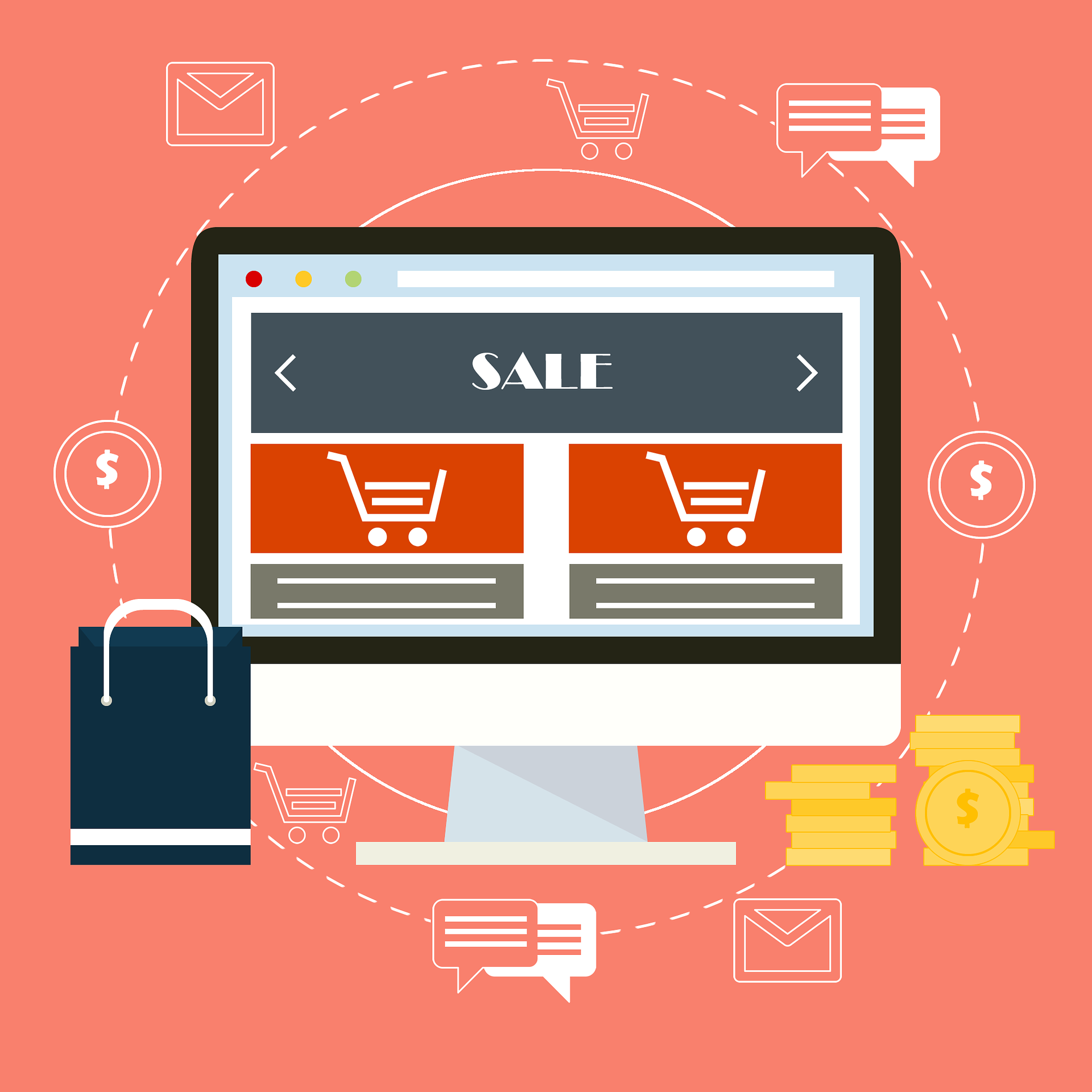Why good design is important for online retail
When it comes to online retail, entrepreneurs are quite vested in the type of products chosen for the site, review count, and the speed of payment...


A number of mobile users have exploded the world with the addition of a new smartphone user in every passing second. This has opened up various fascinations into the world of convenient and easier mobile-based shopping experience. In various tans-society and cross-section surveys, it was found that the spending power along with net transaction value in term of eCommerce sales has increased to three folds from 2014 to 2019, reaching approximately U.S Dollar 460 million which will continue to grow exponentially. Moreover, the sales through eCommerce mobile applications have increased from 3 percent to 40 percent and claims are high that it will reach 50 percent by 2020.
A most important reason behind the eCommerce applications being so popular is the opportunity they provide and the convenience they have. More functionality at the technical end, also more accessibility with better consumer engagement provides satisfaction in segments like food, travel, grocery fashion etc.
Consumer behavior on a mobile application is the ever-changing phenomenon which is dependent on various factors. However consumer finds it annoying sometimes that they want to visit an online retail website and this pushes them to download the application, again and again, acting as a huge turn off this forces them to find their business somewhere else, moreover this can be resolved if you can provide a perfect blend of optimized mobile experience combined with appropriate functional application. For understanding the behavioral statics of the consumer of the web application let us first see what it takes to develop the application and what an ideal application should include.
The following factors should be taken into account when working on an eCommerce mobile application
With the presence of fully-fledged Content Management System at the enterprise as well as entrepreneur levels like Magneto and WordPress, platform marking has become much faster and affordable. For creating a mobile-based application, it involves the selection of these developmental applications platform with simpler databases and protocols.
A CMS system makes the structural component of the software easier and analog. All the components of the software like web server, database platform management need to be handled by the same party to makes it more secure and risk-free. Though in mobile application system application programming interference is used for exchanging the data between the reference designs as a web application is not a closed system like a website.
API integration is crucial for synchronizing the dynamic information about the product. This can be pulled by the server based API system itself. Robust and tough API integration makes the server as well as the user device more secure and trustworthy as the data on the phone works on the isolation system.
Post-development testing is an important phase of the web application formation. A quality analysis team can work on the compliance of the web application according to various international quality standards and parameters like ISO 9001.
After successful public testing, a mobile application needs to be uploaded in a third-party store that may be IOS or Google play store to get further projected to the customer.
These features are the minimum support needed for the viability of the product in the competitive market. It means that the absence of any of the following features will lead to the fall out of the applications.
User needs to authorize its application required portal in order to make the purchases viable on the website. This can be measured through direct interaction of API client and server relation. This aspect also includes the social logins which are handled by the protocol system like OAuth.
A setting to push notification system is available in all leading social media platforms; they may include apple push notification (APN) or Google cloud messaging (GCM) for IOS as well as androids. They are tuned with each other with the help of server-client API.
With the available choice of various catalog products, every product has its own unique identification number with little and price tags. After a customer choose what he really wants next steps is very essential because smooth payment increases the confidence of the buyer by reducing the hustle. You can have agreements with various payments gateways that allow payment through various wallets, Google pay, Apple pay, etc. Stripe and Braintree are such two gateways which supports many payment portals.
In this also one needs to understand the need of buyers as western customers are more interested in PayPal which supports VISA, MasterCard, AMEX, etc on the other many Asian customers may prefer cash on delivery.
Use of various messaging gateways allows customer to get notified when they are going to get their product. They are sent, managed and transported with the help of various portals like Twilio, Plivo, and Clicktail.
Cart experience is important in engagement of customer for better sales outcome; a customer interference system that is intuitive in nature with offers of financial incentives and gift vouchers decreases the chance of cart being abandoned.
A secondary backend team is very essential for uplifting the experience. Either in the form of email, virtual chats or phone customer care support and feedback are essential.
Now we are almost finished with the developmental phase of a mobile application now let us see how the customer trend is changing over these applications.
The mobile application is designed in such a way that they can extract the best possible financial good out of the retailer and expenses on the side of customers. They encounter the loyalty of the customer in terms of rewards also and save the future card payment options which add to the comfort and convenience.
With the presence of the retail application mark on the homepage of the consumer, mobile is a good way to always remain in their mind and keep the spark and relevant interest of the consumer alive.
The application allows the inventory maintenance, wish list creation which further improves the future shopping possibilities and attributes. Let us see some of the trends
According to a recent survey conducted by POQ studio app, commerce report many interesting facts came out regarding pattern of usage, these are as follows
Most of the high-end brands and famous retail store brands do not even have a web or mobile application, but those like many luxury sports brands who have them have 19% proportion of sales from eCommerce and 10 % being from the mobile application.
Most of the shopping done by the shopper is on Sunday with most of the payments done after 7 p.m
As many people prefer comparison between products before shopping mobile applications like Amazon that procure the comparative study between two modes of the handset have higher sales compared to others.
Sometimes it is the driving force between a hit or a miss of the product, which one may fail to recognize. An imperative study shows that the trend of women doing shopping is twice in comparison to males. Thus looking into the different aspect of eCommerce in a broader landscape allows these companies to shoot their product surveys to better audience base.
Likewise, the gender gap in age pattern is also present. Age group between 18 years to 34 years is being the golden pass for online shopping. An individual of this age group roughly spends us dollar 2,000 in a year. Even though it is considered that group belonging to age 35 to 44 has much more income and high population, they could serve the next best possibility in case of saturation.
Even though retail apps receive highest number of visitors on Sundays, this traffic on the application is not always as fruitful as the conversion rate in slow on Sundays compared to Fridays and Saturdays. A new pattern has been observed that iOS users have higher conversions on Fridays and Android user conversion is usually on Saturdays. That means Sundays are spared for window shopping by everyone!
A recent shift in the buying behavior and capacity of the consumer has urged many retailers to knock the door of mobile application possibilities and digital offerings. With the ever growing smartphone sales, global sales from mobile devices will surpass everything. Do not be left behind make yourself prepared for this phenomenal shift.
Need help with your mobile apps? Get in touch now

When it comes to online retail, entrepreneurs are quite vested in the type of products chosen for the site, review count, and the speed of payment...

There can be no denying that new technology in mobile application development is affecting for all intents and purposes for each specialty and...

The development of technology and the accelerating growth of mobile phone usage has heightened the demand for app developers to extend beyond meeting...